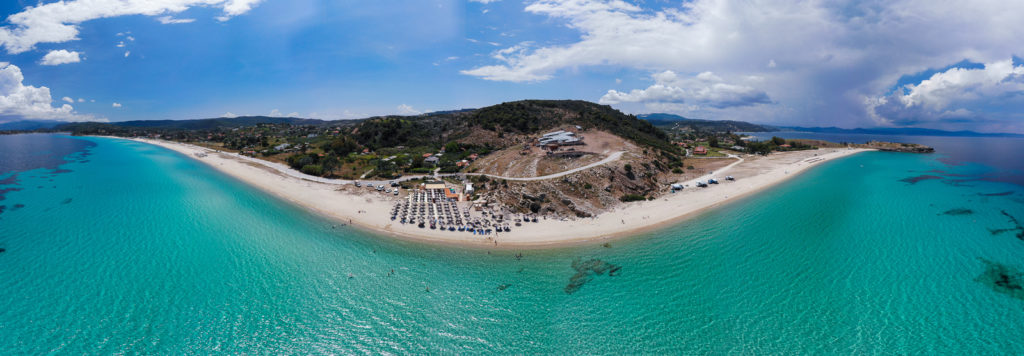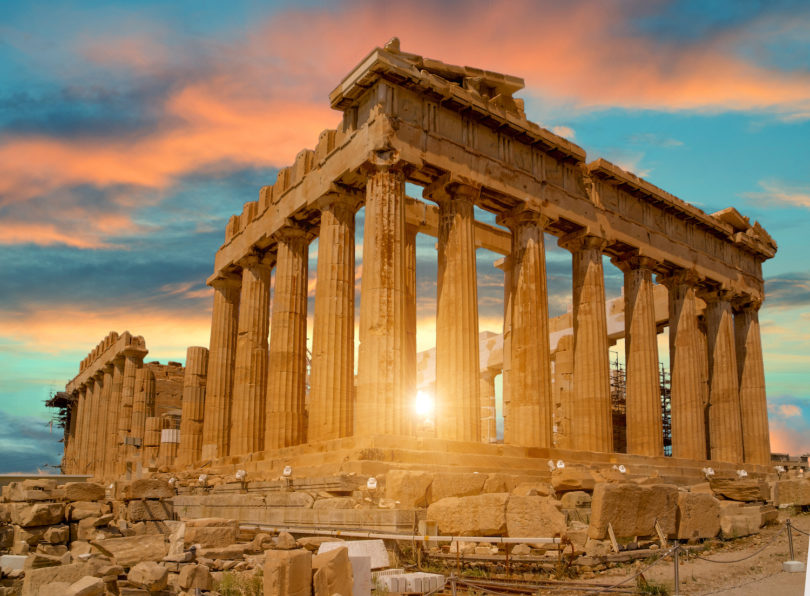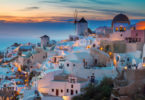Greece has seen explosive growth in tourism over the last few years to the highest numbers ever. For a country that really relies on tourists as a huge chunk of their economy (25-30% of their GDP comes from the tourism industry), they are feeling the squeeze that these large numbers of tourists bring to the overall system of Greece. And the mayor of the largest city in Greece is saying that it isn’t viable anymore in its current setup.
Tourism in Greece Isn’t Viable Anymore – Athens Mayor
Greece has had many economic problems over the last couple of decades and as they have climbed out of their big one over the past few years, there are some segments of the country’s system that have not caught up with the major push in the area of tourism.
For example, places frequented by tourists have jumped their prices to meet the demand, especially with a smaller supply in certain areas, but the tourists are no longer just coming in the summer. Many places see tourists coming in year round. This puts a huge squeeze on the locals who mostly make no where near in salary what the new prices for lodging and food cost. In fact, reports stay that Greeks have been “priced out” of holidays this summer due to the rising costs in airfare and lodging.
And this time of year is a huge time for Greeks and their holidays. The area we had lived in would really start shutting down around the middle of July and almost completely come to a halt during the August 15th holiday as people fled from the city to the beaches. As it turns out, tourists have also be making these pilgrimages now and that prices out the locals from being able to do what they had previously done.
The mayor of Athens said that, “Each visitor brings €.40 to the city and we haven’t seen this money yet. We need to find a way to make tourism viable.” Greece is trying to work on this by shifting some of their resources and focus to keep things sustainable and help the local economies going forward.
One of those things was to cap the number of visitors per year at Greece’s most famous attraction, the Acropolis. This cap allows for 20,000 visitors per day to try and prevent it from being completely overrun. I have been their in high season and low season and I can tell you that, during the summer, it is incredible how packed it is.
They have also instituted fines for the beach bars and cafes when it comes to the amount of beach they are covering with their chairs and umbrelles. The cafes do not own those portions of beach, in fact, Greece has ruled that the shorelines of Greece are a public good and the public has a right to access them whenever they want. To that end, Greece is clamping down on those businesses that encroach to close to the sea. The limit is 4 meters – about 13 feet – from the sea. And there cannot be umbrella/chair rentals on beaches that do not even have 13 feet of sand. They have already handed out over €350,000 in these fines this year and this number will probably go up quite a bit next month.

A beach in Halkdiki, Greece
Another issue is rentals. Greece is reshaping how the rentals will work for the short term market, including for properties acquired as part of the Greek Golden Visa program. This is due to many foreigners (and some rich Greeks) snapping up places on the market and causing rental prices to go much higher than normal rents to make as much as possible from tourists.
To give you an idea, we had lived in an awesome home that had a 1/2 acre of gated land and the home itself was 1,700 sq ft. It had a beautiful view of the sea and mountains and was only 15 minutes from the nearest beach. Our rental price had been €650 per month (the owners now rent it out for €1,000 per month). Places in similar locations with less land, smaller homes and not as good views can command as much as €350-400 per night.
If you visit Greece as a tourist, you may not notice some of this but you can count on Greece to work on making the tourism sustainable going forward – in the end, it may mean that you will pay some more for your Greek holiday. But, Greece is still an awesome place to visit and there are plenty of places and ways around the country where you can get an authentic Greek holiday – without paying the sky high prices that most tourists do in the popular places like Santorini, Mykonos, Athens, etc. I will have some posts on those in the future.









I do what I can to avoid Greece in the summer. And not just because of the bigger crowds. I try to minimize time in all hot places during the summer. And before I started with Scandinavia to enjoy cooler summers it was more typical for me to got to Argentina to get out of the DC/NYC summer heat or go far enough north and high enough in altitude to get to cooler outdoor temperatures in the summer.
Unfortunately the era of going even up to the mountains to get cooler weather isn’t working out like it used to work out. For example, let’s take parts of the Himalayas — it was actually as hot or hotter in the biggest city in Kashmir valley than it was even in Bombay and Bangalore. Sort of the same kind of dynamic in some parts of continental Europe too this summer where it didn’t turn out cooler than places that are more typically expected to be hotter than the historically cooler places.
“Cool-cation” land is going to become increasingly valuable as vacation or living destinations in a world facing the warming temperatures and all the pollution in the oceans — including the microplastics that are probably going to lead to more cardiovascular problems (including “sub-performance” in public and private ways).
The ultimate luxury will be to live and vacation in places with better weather for outdoor activities during the summer and less risk of exposure to deadly pollution. Unfortunately, the Mediterranean is getting more and more polluted and the Aegean and Ionian Seas are not spared.